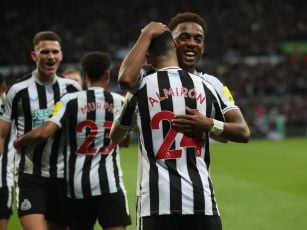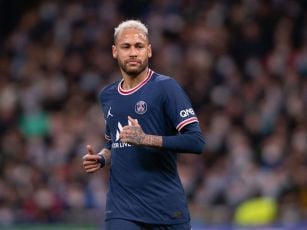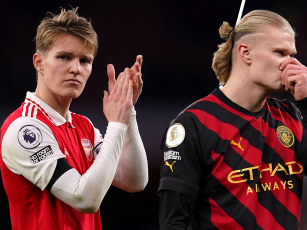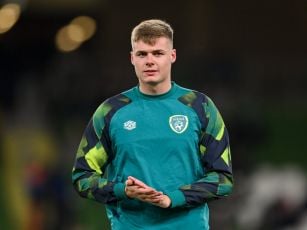Everton weren't guaranteed to win the European Cup in 1986 and 1988.
But the trends from the 1980s would have put the Merseyside club among the clear favourites for those years' tournaments.
From 1976-77 to 1984-85, English league clubs had won seven of the nine European Cup finals with Liverpool (4), Nottingham Forest (2) and Aston Villa (1) winning those trophies.
However, the year Everton won their first league title in 15 years, Juventus beat Liverpool in the 1985 European Cup final.
Sadly, the match was overshadowed by the Heysel Stadium disaster which tragically led to the deaths of 39 fans of the Italian club.
But it also had far-reaching consequences for English clubs with a five-year ban from European competitions.
Everton were reigning English champions, winners of the 1985 European Cup Winners Cup and still in the midst of their great mid-80s era when the ban hit.
And it has always left a question of "what if" when it comes to the Toffees as we explored with Here We Go - Everton in the 1980s: The Players' Stories.
You can listen to the full interview on the podcast player or on iTunes:
The age of the team that won the league and Cup Winners Cup meant the potential to carry their domestic dominance into continental action for more than a fleeting period of time was vast.
"When they won the Cup Winners Cup in '85, seven of the starting eleven were under 25 and they all grew up together. They were picked up when they were 19-21," said Hart.
"You look at Aston Villa who won the European Cup in [1982] and probably weren't really a great team. It was just a moment in time when English football was dominating on the European scene. So there was the opportunity then [for Everton] and it went missing and it is a missed opportunity, no matter what's happened since then."
Particularly tantalising was the fact that tactical cleverness from manager Howard Kendall and first-team coach Colin Harvey - as discussed in detail by Hart on the podcast - had already led them to a fine achievement by avoiding defeat away from home against Bayern Munich in the 1985 Cup Winners Cup en route to winning that trophy.

Rapid Vienna captain Hans Krankl (l) and Everton captain Kevin Ratcliffe (r) exchange pennants in front of Referee Paolo Casarin (Italy) before kick off. Picture by Peter Robinson EMPICS Sport
But it was the bankable aura of being a potential European Cup winner that was lost to Everton.
"Manchester United had won the European Cup [in 1968] and established an international reputation for themselves. Liverpool had won the European Cup and done likewise. It was Everton's window of opportunity because there had been only one other younger English team to have won a European trophy since 1970 which was Spurs in 1984. This was a team with an average age of 24.3 years so they looked like they had the world at their feet. They were World Soccer's Team of the Year in 1985. It was the chance. English clubs were winning in Europe every year at that point in time and you do think they could have built some kind of a name for themselves in Europe at that moment in time."
The immediate consequences of the ban was that Gary Lineker, who scored 38 goals in his only season at Everton in 1985-86, and then Kendall in 1987 left for Barcelona and Athletic Bilbao respectivly, where European football was a possibility.
Hart discusses that as well as how the team slid from the summit in the full interview while the book explains how much Everton lost out on financially by not being able to play in the European Cup.
Download the brand new OffTheBall App in the Play Store & App Store right now! We've got you covered!
Subscribe to OffTheBall's YouTube channel for more videos, like us on Facebook or follow us on Twitter for the latest sporting news and content.








